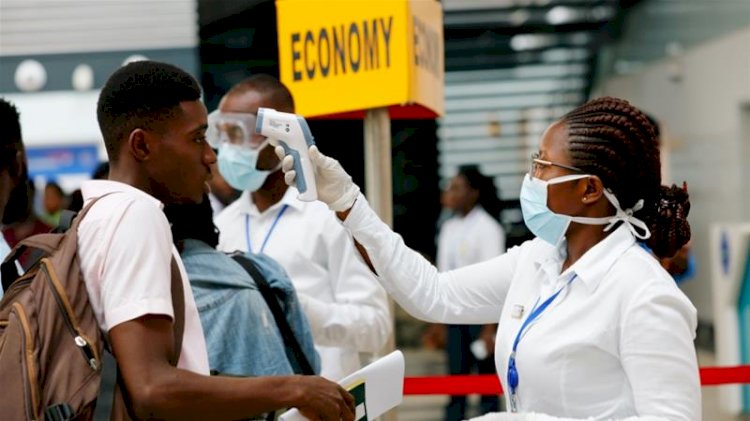Don’t Repatriate Foreigners Tested Positive for Coronavirus – AU
The AU said it would be out of place to repatriate foreign nationals amid the pandemic.

The African Union Commission (AU) has appealed to its 55 member states not to repatriate other African nationals who test positive for the coronavirus disease (COVID-19) while in jurisdictions different from their home countries.
Instead, the Commission wants member states to treat such persons just like any other patient of the disease in the countries they tested positive.
The Director for the African Centre for Disease Control and Prevention (Africa CDC) at the AU, Dr John Nkengasong, noted that it would be out of place to repatriate these foreign nationals amid the pandemic.
His comment followed the indications by government of Ghana to repatriate 10 ECOWAS nationals who tested positive for COVID-19.
The Minister of Information, Mr Kojo Oppong Nkrumah, had on Sunday, March 29, 2020 given an indication that the ten would not be treated in Ghana, a decision many have described would rather put the lives of many others at risk of contracting the virus should they be repatriated.
READ ALSO:
Canoes Invading Offshore Oil Fields, Illegally Bringing In Immigrants
“If a national of a member state tests positive in a country different from their home country, they should seek care in that country, and officials ought to engage with physicians on how to adequately manage the process of care,” Dr Nkengasong said.
Addressing journalists across the continent via video conference, he maintained that member states need to intensify their ability to test and detect patients, isolate them and find their contact to be monitored as containment strategies.
The AU, he said, has presently deployed an online platform in delivering training on laboratory diagnostics, surveillance, and infection prevention and control for member states due to travel restriction.
Similarly, the Africa CDC, he said is providing support to countries through the distribution of test kits and other logistics to assist in the care and treatment of patients.






































